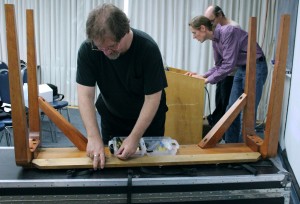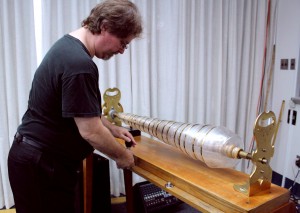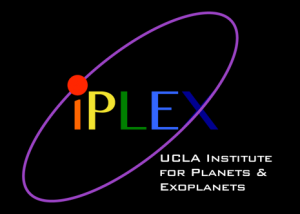Water, organics and other volatiles are widely distributed throughout the inner solar system. For example, we find volatiles in the interiors of terrestrial planets and asteroids, as solids in the cryospheres, polar caps and permanently shadowed regions of planets and asteroids, as liquids on the surface of Earth and possibly on Mars, as gases in atmospheres and exospheres and in icy objects recently scattered to the inner solar system from beyond the snow line. Volatiles have played a key role in determining the properties and evolution of inner solar system bodies, and are central to the origin and evolution of life. Despite this, our understanding of their sources and evolution is far from complete.
The UCLA Institute for Planets and Exoplanets (iPLEX) will host a two day interdisciplinary conference on the nature, distribution, origin and evolution of frozen volatiles and organics in the inner solar system. Topics will include:
• Polar ice and permafrost on planets and asteroids
• Delivery of terrestrial planet atmospheres and oceans
• Water and organics in comets
• Liquid water habitats in the inner solar system
The conference format will include summary talks as well as contributed papers, with time set aside for discussion and questions. Attendance is limited to 60 participants and pre-registration is required (see below).
Meeting Logistics & Registration
The conference will take place at Royce Hall on the UCLA campus. Information about meeting location, transportation and nearby accommodations is provided on the Logistics Page.
The second announcement and call for abstracts will be on April 3rd. Final deadline for abstract submission is May 25th. There is no fee required to pre-register, however a $75 fee will be requested upon acceptance of a submitted abstract to cover the cost of refreshments and dinner. Guests are advised to book their accommodations early as hotels are expected to fill up well in advance due to the UCLA graduation ceremony occurring the same week. Guests who wish to attend the conference must pre-register by clicking on the button below.
[button link=”http://div2.diviner.ucla.edu/cgi-bin/unsec/iplexreg” color=”teal”]Pre-Registration [/button]
Tentative Program
| Day 1 |
Day 2 |
| Morning session |
Morning session |
| Overview of frozen volatiles and organics in the inner solar system |
Volatiles and organics on the Moon |
| Origin of the Earth’s volatiles |
Volatiles and organics on Mercury |
| Afternoon Session |
Afternoon Session |
| Volatiles and organics in Comets |
Volatiles and organics on Mars |
| Volatiles and organics on Asteroids |
Liquid Water Habitats in the Inner Solar System |
| Evening |
| Dinner at the UCLA Faculty Center |
|
Click here for the second announcement and call for abstracts.




